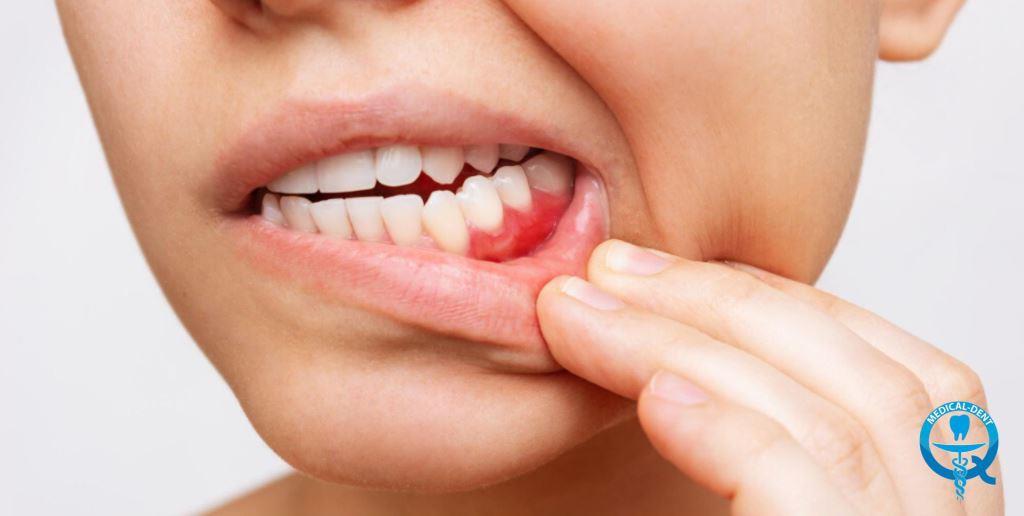Bleeding gums, pain, swelling and even tooth loss - these are the possible consequences you have to reckon with if you don't take proper care of periodontal disease. And how do you recognise these conditions, when should you go to the dentist and, ideally, how can you prevent them? You will find the answers in the article.
Periodontal diseases - what are they?
Periodontal diseases are conditions affecting the soft tissues (mainly the gums) and structures surrounding the teeth. These include:
- gingivitis, an inflammation of the gums that is often caused by a build-up of plaque.
- periodontitis, an advanced form of gingivitis in which the infection spreads to tooth-supporting structures such as bone and connective tissue.
- periodontitiswhich is an inflammatory condition that affects the structures that support the teeth, including the bone. It is an advanced form of periodontitis that can lead to tooth loss.
The periodontal diseases mentioned above are most often caused by a build-up of plaque. This builds up as a result of poor oral hygiene, including a lack of regular dental visits.
We remind you that hygiene should take place every six months. Why? Because regular brushing and flossing is not able to remove the buildup of plaque and deposit in 100%. And this, as we mentioned, has consequences.

First symptoms
If you develop worrying symptoms in your mouth, it is best to contact your dentist as soon as possible. The earlier the disease is diagnosed, the faster, shorter and more effective the treatment. And what should you pay special attention to?
The first of the worrying signs is bleeding gums, usually during brushing. Another is swelling and redness. Plus pain associated with the teeth or gums and bad breath.
If you do not make an appointment with your dentist at this stage the problems will get worse. The gums will start to recede and expose the necks of the teeth. The spaces between the teeth will become larger. Bone erosion may also occur.
Therefore, if you observe any of the above symptoms, contact your dentist as soon as possible.

Effective treatments for periodontal disease
Which treatment is used, of course, depends on the condition itself, but also on its severity.
At an early stage (and as a preventive measure), the dentist will perform hygienization. This is a number of procedures that involve cleaning and removing plaque in the office. You can read more about this in our article "Dental hygiene in the UK - scaling, tooth sandblasting, polishing and fluoridation".
The next step in the treatment of periodontal disease is scaling and root planing. These are treatments that remove plaque and smooth the surface of the tooth roots. In our practice, we use state-of-the-art equipment for this purpose, i.e. Vector Paro Pro. With its help, we can remove plaque and supragingival calculus, as well as subgingival calculus that builds up in the gingival pockets. If you would like to find out more, we recommend our article "Modern periodontitis treatment in the UK with Vector Paro Pro„.
In some cases, treatment with antibiotics will be necessary. Your dentist may also prescribe special mouthwashes or gels to combat infection.
In cases of advanced periodontal disease, surgical treatment such as regenerative procedures or bone grafts may be necessary.

Prevention is better than cure!
It's a sacred principle that will save you pain, stress and expense. Here are some simple steps to help you take care of healthy gums.
- Regular oral hygiene. Regular brushing, flossing and the use of mouthwashes are key elements of daily oral hygiene.
- Regular visits to the dentist. Professional cleaning and regular check-ups are vital in preventing periodontal disease.
- Healthy lifestyle. A balanced diet rich in fruit and vegetables, avoiding smoking and limiting alcohol consumption is of paramount importance for gum health.
Why is this so important? Because periodontal disease affects not only the mouth or appearance but also the whole body. Read our text "Decayed teeth a danger to the health of the whole body" and find out more.

